Italian and Greek partners in the LIFE Bear-Smart Corridors initiative recently visited Canada to learn about Bear Smart Communities in British Columbia. The insights acquired and collaborative ethos developed will enhance rewilding efforts.
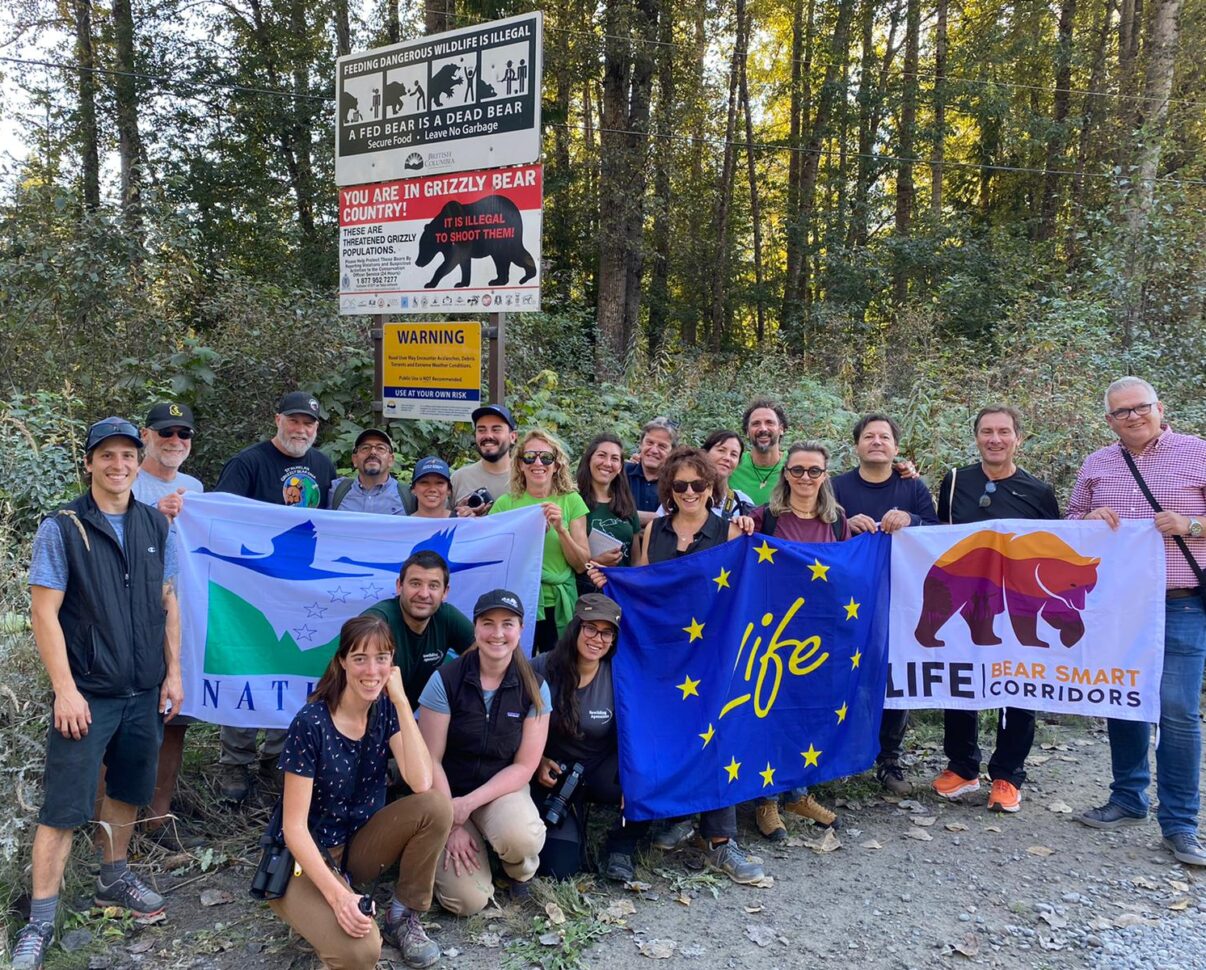
A productive trip
Rewilding is still a pioneering approach to conservation, meaning many rewilding initiatives are attempting to do things that have never been done before. This means knowledge exchange is essential if the collective efforts of the rewilding movement are to be enhanced.
Members of the LIFE Bear-Smart Corridors (BSC) initiative, which is working to support and increase populations of brown bears in Central Italy and Greece, gained valuable insight and much inspiration from a recent trip to British Columbia, on the west coast of Canada. So-called “Bear Smart Communities”, which are designed to promote amicable relations between bears and humans and represent a cornerstone of the LIFE BSC initiative, were first conceived in North America. Between September 18 and 29, the European group – which comprised 16 representatives of NGOs and other organisations and institutions from Italy and Greece – learned first-hand about the Canadian province’s very own Bear Smart Communities Programme, which began nearly 20 years ago.
“It was a fantastic and really productive trip,” says Rewilding Apennines team leader Mario Cipollone, who was one of three Rewilding Apennines team members participating. “The Bear Smart Communities model began in Canada, so we wanted to see how it had developed, and to understand the differences and commonalities with the work currently being carried out in Italy and Greece. The experience also helped to bring everyone in the group closer together, which will also benefit our rewilding efforts.”
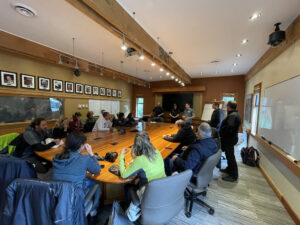
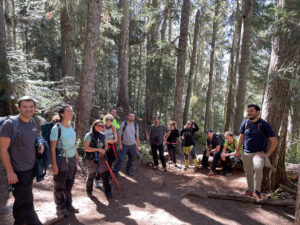
Transatlantic parallels
Today, the Marsican brown bear – a subspecies of brown bear living in the Central Apennines of Italy – is critically endangered, with only around 60 individuals living in the wild. The Rewilding Apennines team are currently overseeing and developing a number of Bear Smart Communities, with three already established and more in the pipeline. Rewilding efforts in and around these communities focus on a range of measures to promote harmonious human-bear relations, such as the installation of electric fences and bear-proof bins, the restoration of abandoned orchards, and the development of nature-based economies. All Bear Smart Communities are located within wildlife corridors which connect key national parks and reserves in the area.
As in the Central Apennines – and in other parts of Canada and the US – the goal of British Columbia’s Bear Smart Community Programme is to promote human-bear coexistence, thereby safeguarding and enhancing bear populations and reducing the risks to humans and their property. The vast majority of human-bear conflicts in North America occur around human habitation where rubbish, compost, human food, and other sources of calories for bears are accessible. Bears can come to rely on these resources and become defensive of them – a situation which is often lethal for the bear and dangerous for humans.
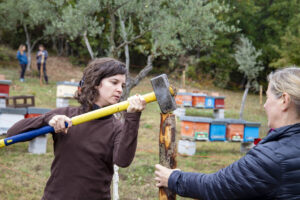
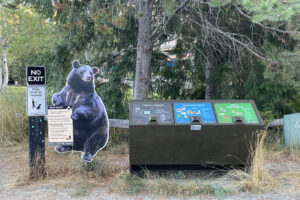
A varied itinerary
British Columbia’s Bear Smart Communities Programme is managed by the British Columbia Conservation Officer Service. During their time in Canada, the LIFE BSC team visited communities in North Vancouver, Lions Bay, Squamish, Whistler and Pemberton, which are all settlements located north of the city of Vancouver.
Mario Cipollone was impressed by the strong “bear country” communications that were being carried out in these locations.
“Such communications mean reaching out to as many people in these communities as possible (even if that means going door-to-door), labelling everything as ‘bear smart’, and never taking for granted that people know how to behave in bear country,” says the Rewilding Apennines team leader. “Another key takeaway from the trip was that it reinforced the key role NGOs should play in mediating with local communities. Many times, the best way to raise awareness is through example and dialogue – not only law enforcement.”
In addition to these visits the group enjoyed several outings in Canadian nature and were lucky enough to see several black bears and even a pod of killer whales.

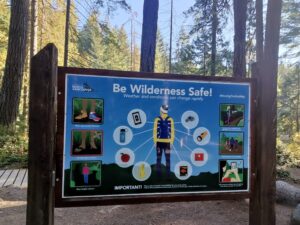
Moving forwards
Emphasis will now be placed on building on the trip and putting the knowledge gained into practice. The Italian partners met during the trip to brainstorm and crystallise their impressions (and reported their feedback to the Greek contingent), with another in-person meeting scheduled for late October.
“We will stay connected with the Canadian Bear Smart Community and NGO representatives that we met, with the hope we can welcome them to Italy and Greece at some point,” says Mario Cipollone. “Strengthening the relationship between organisations facing the same issues can be beneficial for information exchange and learning.
“From a human-bear coexistence perspective, there are many differences as well as similarities between the situation in North America and that in Europe,” he continues. “In Italy and Greece people tend to have a more anthropocentric view, which means they think people come before animals. The Canadian model is also stronger in terms of law enforcement. Nevertheless, the efforts carried out by NGOs and institutions so far in both Italy and Greece are remarkable by comparison. There is a lot more work that needs to be done, but should be proud of our achievements to date.”

